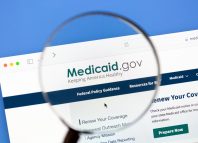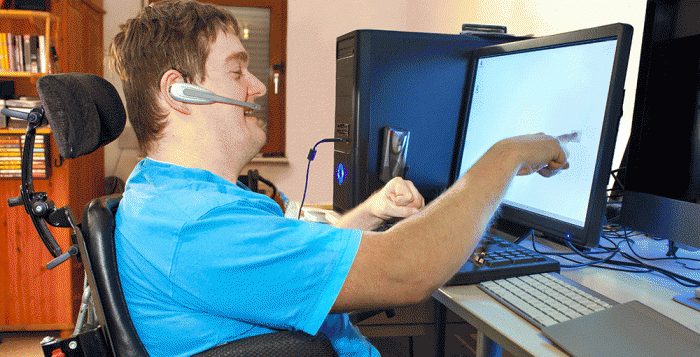OMHSAS/Value-Based Update: OSA Submission Deadline Extended to August 7
Gateway Health Virtual Panel Discussion: Effect of COVID-19 on Vulnerable Communities
From RCPA member Gateway Health:
Dear Community Partner,
At Gateway Health, we strive to care for the whole person in all communities where the need is greatest. As part of our journey to deliver whole person care, we are now hosting a series of virtual panel discussions for our members and community partners. Given the ongoing challenges associated with hosting in-person and on-site events, we are using these virtual sessions to help us reconnect with the communities we serve.
We hope that you will consider joining us for our first event which will focus on “The Effect of COVID-19 on Vulnerable Communities.”
Date: Thursday, July 30
Time: 11:00 am – 12:00 pm
Click here to register
As we adjust to new virtual formats as a way to engage directly with the community, our efforts can only have a meaningful impact with the full support of outstanding community organizations like yours. We respectfully ask that you please consider sharing this information on your website, social media platforms and with your network. Your assistance with promoting events like this is truly appreciated. Additionally, if there are topics that would be of interest to you and those your serve or if you would like to suggest a subject matter expert, please let us know. Your input is extremely valuable.
Thank you for your continued support of Gateway Health and the communities we serve! See flyer for details.
Two New Prescribing Guidelines to Help Address Substance Use Crisis in PA
FOR IMMEDIATE RELEASE
July 22, 2020
Harrisburg, PA – Wolf Administration officials announced today that two new prescribing guidelines, Guidelines for the Safe Administration of Subanesthetic Ketamine and Treatment of Acute and Chronic Pain in Patients With Sickle Cell Disease (SCD) have been published to assist physicians working to treat patients.
“These two prescribing guidelines developed by the Safe and Effective Prescribing Task Force are the latest available to assist healthcare providers as they treat their patients,” Secretary of Health Dr. Rachel Levine said. “These guidelines bring the total number to 14 available to physicians as they work to treat people who are already dealing with the disease of addiction. It is important that physicians look at a wide range of therapies as they work to treat these subsets of the population.”
The ketamine guideline differs from previous prescribing guidelines by addressing administration of a non-opioid. The ketamine guideline provides best practices for the subanesthetic administration of Ketamine for a variety of conditions. This includes recommendations for the treatment team, treatment location, patient selection, and patient monitoring.
The SCD guideline provides best practices to treat acute painful crises that occur with SCD patients as well as best practices for chronic pain care. The SCD guideline addresses the specific needs of that patient population. This can help prevent the misapplication of recommendations to populations that are outside the scope of other prescribing guidelines, including patients experiencing acute sickle cell crises. It is especially important to have resources specifically for the treatment of SCD patients as this patient population often experiences racial disparities and stigma.
“Health care professionals play a vital role in combatting the opioid crisis,” said Department of Drug and Alcohol Programs Secretary Jen Smith. “The reality is that even individuals with opioid use disorder experience chronic pain and need treatment plans that meet their unique needs. We must give physicians the tools to adequately treat individuals living with substance use disorder to ensure they can lead happy, healthy lives.”
The Opioid Command Center, established in January 2018 when Governor Tom Wolf signed the first opioid disaster declaration, continues to meet each week to discuss the opioid crisis. The command center is staffed by personnel from 17 state agencies, spearheaded by the departments of Health and Drug and Alcohol Programs.
On July 6, the Opioid Command Center released its strategic plan, highlighting accomplishments to date and providing a roadmap for the continued work to help those with substance use disorder. The plan, available here, includes five goal areas: prevention, rescue, treatment, recovery and sustainability.
Work to address the opioid crisis focuses on three areas: prevention, rescue and treatment. Efforts over the past several years, working with state agencies, local, regional and federal officials, have resulted in significant action to address the opioid crisis:
- The Prescription Drug Monitoring Program has reduced opioid prescriptions by 34 percent and has virtually eliminated doctor shopping.
- The number of people receiving high dosages of opioids (defined as greater than 90 morphine milligram equivalents per day) has dropped 53 percent since the PDMP launched in August 2016
- The Opioid Data Dashboard and Data Dashboard 2.0 has provided public-facing data regarding prevention, rescue and treatment.
- 14 Pennsylvania Coordinated Medication Assisted Treatment (PacMAT) programs are serving as part of a hub-and-spoke model to provide evidence-based treatment to people where they live, with just under $26 million dedicated into the centers.
- More than 45 Centers of Excellence (COEs), administered by the Department of Human Services (DHS), provide coordinated, evidence-based treatment to people with an opioid use disorder covered by Medicaid. The COEs have treated more than 32,500 people since first launching in 2016. A recent announcement regarding COEs was made by DHS.
- The waiver of birth certificate fees for those with opioid use disorder has helped more than 4,600 people, enabling easier entry into recovery programs.
- A standing order signed by Dr. Rachel Levine in 2018 allowed EMS to leave behind more than 2,400 doses of naloxone.
- Education has been provided to more than 6,600 prescribers through either online or face-to-face education.
- 882 drug take-back boxes help Pennsylvanians properly dispose of unwanted drugs, including 178,540 pounds of unwanted drugs in 2019.
- The Get Help Now Hotline received close to 36,800 calls, with nearly half of all callers connected directly to a treatment provider.
- The state prison system has expanded their Medication Assisted Treatment (MAT) program which is viewed as a model program for other states.
- A body scanner pilot project was successful in reducing overdoses and violent crime in a number of facilities. Body scanners are in place in more than 30 locations and are currently being expanded to additional facilities.
- Several agencies have worked together to collaborate on the seizure and destruction of illicit opioids across Pennsylvania.
- Education and training on opioids has been provided to schools. Future plans are in place to make opioid education a standard component of their school-based training.
- The coordination with seven major commercial providers has expand access to naloxone and mental health care, while also working to make it more affordable.
- Naloxone has been made available to first responders through the Commission on Crime and Delinquency, with more than 63,400 kits made available and close to 12,700 saves through that program. More than half of those saves, 6,633, occurred in 2019.
- EMS have administered close to 39,500 doses of naloxone and more than 10,000 doses were made available to members of the public during the state’s naloxone distribution last year.
More information on the opioid crisis can be found on the Department of Health’s website at health.pa.gov or follow us on Facebook and Twitter.
MEDIA CONTACT:
Nate Wardle, 717-787-1783 or RA-DHPressOffice@pa.gov
Rachel Kostelac, 717-547-3314
# # #
Dept of Health Builds Contact Tracing Resources to Support Increases of COVID-19 Cases
Senator Casey’s Virtual Disability Employment Summit Friday, July 24
You are invited to attend Senator Casey’s Virtual Disability Employment Summit on Friday, July 24 from 10:30 am to 11:45 am. The Summit will be broadcast live starting at 10:30 am. You can join the Summit here.
The Summit will examine the impact of the novel Coronavirus (COVID-19) health crisis on disability employment, as well as discuss strategies to improve the disability employment rate and ensure that people with disabilities are able to return to work.
Individuals can register for the Summit by emailing your name, organization, and zip code. While registration is not required, by doing so, you will receive an email ahead of the Summit with the agenda and additional resources. There is no cost to attend this Summit.
Additional accessibility information will be released closer to the event. The Summit is open to the general public, so please consider sharing this invitation with others who may be interested.
Call on Regional Response Health Collaborative Program Planned for July 24
The Department of Human Services (DHS) and Department of Health (DOH), in coordination with the Pennsylvania Emergency Management Agency (PEMA) and the Centers for Disease Control and Prevention (CDC), have developed the Regional Response Health Collaboration Program (RRHCP). This program is designed to directly support COVID-19 readiness and response in long-term residential care facilities, including long-term care nursing facilities, personal care homes, and assisted living residences. The program also provides assistance to other DHS-licensed facilities, Adult Living Centers and State Veterans Homes. In addition, the program was developed to improve infection prevention and facilitate continuity of care and other services provided by long-term care facilities in a manner that mitigates risk of spread of COVID-19 to staff and residents.
The RRHCP is a collaboration between DHS and nine regional health collaboratives consisting of health care systems and academic medical centers. The RRHCP is divided into six regions, with a health collaborative responsible for all or a portion of the long-term care facility census in each region which includes:
- Southeast Region:
- Thomas Jefferson University in partnership with Mainline Health and Lehigh Valley Health Network
- University of Pennsylvania in partnership with Temple University Hospital, Inc.
- Northeast Region:
- Geisinger Clinic
- Lehigh Valley Hospital, Inc.
- Southcentral Region:
- The Pennsylvania State University
- Northcentral Region:
- Geisinger Clinic
- Southwest Region:
- UPMC Community Provider Services in partnership with Allegheny Health Network, the Jewish Healthcare Foundation, and the Hospital Council of Western Pennsylvania
- Northwest Region:
- LECOM Health
- UPMC Community Provider Services in partnership with Allegheny Health Network, the Jewish Healthcare Foundation, and the Hospital Council of Western Pennsylvania
The RRHCP will provide operational and administrative support to protect residents in long-term care facilities from COVID-19. It will help facilities implement best practices in infection control, implement contact tracing programs in facilities, support clinical care through on-site and telemedicine services, provide remote monitoring and consultation with physicians, and enhance testing capability for both individuals in care and staff at facilities.
The RRHCP will also assist in identifying alternate care arrangements for hospitalized COVID-19 patients until they are considered no longer infectious and can return to their long-term care residential facilities. Services and assistance offered by the RRHCP include, but are not limited to:
- Establishing a call center with 24/7 access for providers to access clinical consultation and technical assistance;
- Assisting with universal testing;
- Providing expertise in infection control;
- Deploying rapid response teams in case of emergency in conjunction with DOH, DHS and PEMA;
- Assessing the facility’s capability and capacity to prevent and to respond to a COVID-19 outbreak, including review of policies and procedures to prevent introduction of COVID-19 into the facility, fundamental infection control practices, and its readiness to respond to an outbreak of COVID-19;
- Assisting facilities with ensuring hazard response plans are in place;
- Reviewing the process for behavioral health assessments;
- Providing emergency preparedness for personal protective equipment assessment and coordination;
- Establishing a statewide educational support resource for providers to have access to state and national resources;
- Assisting providers with staff augmentation when needed;
- Working with DOH and DHS to conduct contact tracing;
- Assisting providers in developing and implementing plans for alternate care settings for residents if outbreaks of COVID-19 occur at their facility; and
- Providing software and technical support to facilities to support two-way communication between residents and their families.
The RRHCP is based on the Educational Support and Clinical Coaching Program (ESCCP), a learning network that provided technical assistance and educational support to long-term care facilities in light of the current pandemic.
An introductory webinar has been scheduled for Friday, July 24, 2020 from 9:00 am – 10:00 am. The webinar, “Support for Long-Term Care Nursing Homes, Personal Care and Assisted Living Facilities, is open to all provider types and all members are encouraged to participate to learn more about this program. The webinar information is provided below:
Login: Webex Link
Password: DHS2020
Call-in: 1-844-621-3956
Event Number and Access Code: 145 274 9024
Please contact this email for DOH questions or use this email for DHS questions.
Guidance Issued on Civil Rights Protections During COVID-19
On July 20, 2020, the Office for Civil Rights (OCR) at the United States (U.S) Department of Health and Human Services (HHS) issued a guidance bulletin, “Civil Rights Protections Prohibiting Race, Color, and National Origin Discrimination During COVID-19,” to ensure that recipients of federal financial assistance understand that they must comply with applicable federal civil rights laws and regulations that prohibit discrimination on the basis of race, color, and national origin in HHS-funded programs during COVID-19.
To help ensure Title VI compliance during the COVID-19 public health emergency, recipients of federal financial assistance, including state and local agencies, hospitals, and other health care providers, should:
- Adopt policies to prevent and address harassment or other unlawful discrimination on the basis of race, color, or national origin.
- Ensure – when site selection is determined by a recipient of federal financial assistance from HHS – that Community-Based Testing Sites and Alternate Care Sites are accessible to racial and ethnic minority populations.
- Confirm that existing policies and procedures with respect to COVID-19 related services (including testing) do not exclude or otherwise deny persons on the basis of race, color, or national origin.
- Ensure that individuals from racial and ethnic minority groups are not subjected to excessive wait times, rejected for hospital admissions, or denied access to intensive care units compared to similarly situated non-minority individuals.
- Provide, if part of the program or services offered by the recipient, ambulance service, non-emergency medical transportation, and home health services to all neighborhoods within the recipient’s service area, without regard to race, color, or national origin.
- Appoint or select individuals to participate as members of a planning or advisory body which is an integral part of the recipient’s program, without exclusions on the basis of race, color, or national origin.
- Assign staff, including physicians, nurses, and volunteer caregivers, without regard to race, color, or national origin. Recipients should not honor a patient’s request for a same-race physician, nurse, or volunteer caregiver.
- Assign beds and rooms, without regard to race, color, or national origin.
- Make available to patients, beneficiaries, and customers information on how the recipient does not discriminate on the basis of race, color, or national origin in accordance with applicable laws and regulations.
Interactive Workshop: Attract & Retain Great Direct Support Professionals
Our friends Scott and Craig de Fasselle from Blitz Media are hosting a two-day workshop to help your agency become a “DSP Magnet.”
We have hosted several webinars and most recently half-day workshops with Scott and Craig, and have had very positive feedback from the participants! If you missed the previous opportunities, or want more, here is your chance.
Are you sick of the vicious cycle of recruiting, hiring, & turnover?
Want to attract & retain great Direct Support Professionals?
You can find & keep Direct Support Professionals using free approaches. When you attend the DSP Magnet workshop, you’ll learn how you can…
- Fix the common mistakes in template job posts and applications that drive away applicants
- Prevent people that no call / no show for interviews
- Make free changes to your onboarding and training to reduce turnover
- Keep the culture positive so it does not suddenly turn toxic
Online workshop details:
Tuesday, August 11 & Wednesday, August 12
9:00 am – 12:30 pm Eastern


















